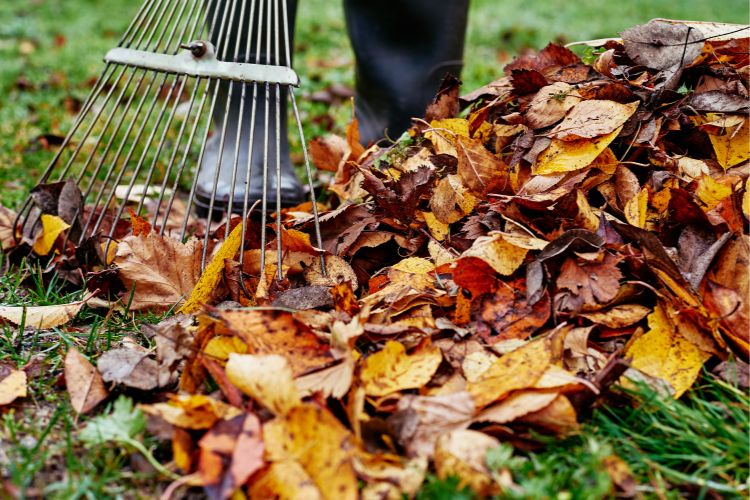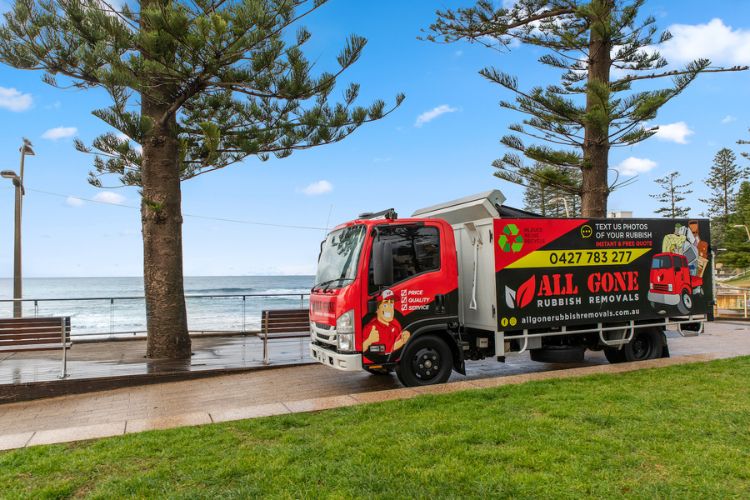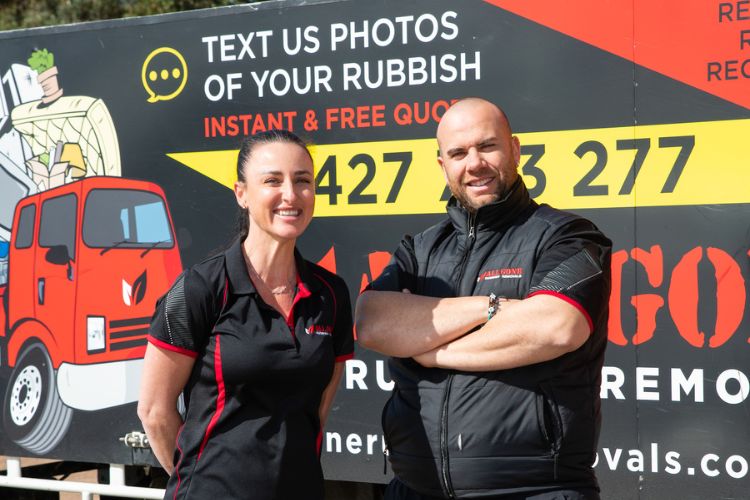Green Waste Associated Risks & Staying Safe From Those
In the bustling heart of Sydney, many homeowners may overlook the lurking danger in their backyards: unattended green waste.
Dried leaves, overgrown shrubs, and fallen branches not only disrupt the aesthetic appeal but also significantly heighten fire risks. As climate change intensifies, Sydney faces warmer temperatures, amplifying these dangers.
Proactively managing and removing green waste is pivotal in safeguarding homes. For those overwhelming backyard clean-ups, turning to professionals like All Gone Rubbish Removals ensures efficient, eco-friendly waste disposal.

What are the risks associated with green waste?
Green waste, if not managed properly, can pose a range of threats to homeowners and the environment:
- Fire hazard: Dry leaves, twigs, and grass can easily ignite, especially in Sydney's warmer months, becoming potential fire starters.
- Pest infestation: Accumulated green waste offers an ideal habitat for pests like rodents, snakes, and mosquitoes, endangering residents.
- Disease spread: Decomposing waste can become a breeding ground for harmful bacteria and fungi, leading to potential health concerns.
- Blocked drainage: Fallen leaves and branches can block gutters and drains, leading to water logging and potential property damage.
- Environmental impact: Decomposing green waste can produce methane, a potent greenhouse gas, heightening climate change concerns.
What are the fire safety requirements for green waste removal?
Understanding and adhering to fire safety guidelines is crucial for Sydney homeowners:
- Clearance zones: Maintain a minimum clearance area around your property, free from dry leaves, twigs, and grass, to prevent potential fire spread.
- Regular maintenance: Prune trees and shrubs regularly, ensuring they don't touch buildings or power lines.
- Mulch and compost safely: If creating mulch or compost, ensure the pile is kept moist and turned often to prevent spontaneous combustion.
- Awareness: Familiarise yourself with local NSW council burn-off regulations and seasonal fire bans.
- Safe disposal: Use council green bins or professional services like All Gone Rubbish Removals for safe green waste removal and avoid burning waste during high fire-risk periods.
What are the best practices for green waste removal?
Implementing efficient and environmentally friendly practices for green waste removal can safeguard properties and promote sustainability:
- Separation is key: Always separate recyclable green waste (like grass clippings, branches, etc.) from other household waste.
- Composting: Convert organic green waste into nutrient-rich compost for gardens.
- Mulching: Turn tree branches and shrubs into mulch to enrich soil and reduce evaporation.
- Scheduled collections: Utilise your local council's green waste collection services.
- Hire professionals: If the amount is overwhelming, consider professional rubbish removal companies like All Gone Rubbish Removals.
- Drop-off points: Use designated green waste facilities for safe disposal, ensuring no contaminants are mixed in.
- Stay informed: Regularly check for updates on green waste disposal from your local council and environmental agencies.
How often should green waste be removed?
The frequency of green waste removal varies based on several factors:
- Seasonal changes: During spring and autumn, plants grow and shed rapidly, requiring more frequent removal.
- Garden size and type: Larger gardens or those with fast-growing plants will accumulate waste more quickly.
- Maintenance routine: Regular pruning and lawn mowing increase the amount of waste.
- Stormy weather: After storms, there's often a buildup of fallen branches and leaves.
- Local collection: Align your waste removal with the local council's green waste collection schedule.
- Safety first: In fire-prone areas, especially during hot and dry months, frequent removal is crucial to minimise fire hazards.
- Personal preference: Some residents prefer weekly clean-ups, while others may opt for monthly or seasonal removal.
What are the consequences of not removing green waste?
Neglecting green waste removal can lead to several undesirable outcomes:
- Fire hazards: Dry leaves and branches can become potential fuel for fires, especially during hotter months.
- Pest infestation: Accumulated green waste can attract rodents, insects, and other pests.
- Disease spread: Rotting waste can be a breeding ground for fungi and diseases, harmful to both plants and humans.
- Aesthetic decline: Overgrown and cluttered gardens diminish the visual appeal of a property.
- Reduced growth: Decomposing waste can stunt plant growth by blocking sunlight and occupying space.
- Drainage issues: Leaves and debris can block drains, leading to water logging and potential property damage.

How can green waste be effectively removed?
Effectively managing and removing green waste involves several strategies:
- Regular pruning: Trim trees, shrubs, and plants to reduce the volume of waste.
- Composting: Turn organic waste into nutrient-rich compost for gardens.
- Mulching: Use shredders to turn green waste into mulch, which can enrich soil and suppress weeds.
- Council collections: Utilise local council green waste collection services if available.
- Hire skip bins: For large volumes, consider hiring skip bins specifically for green waste disposal.
- Professional services: Engage professional rubbish removal companies for comprehensive waste management.
- Recycling centres: Deliver green waste to recycling centres that can process and repurpose the materials.
What are the costs associated with green waste removal?
The costs of green waste removal can vary based on several factors:
- Volume: The more waste you have, the higher the potential cost.
- Service frequency: Regularly scheduled pickups may offer cost savings over one-time collections.
- Skip bin hire: Hiring skip bins for green waste comes at a fee, often based on the bin size and rental duration.
- Professional services: Rates can differ between rubbish removal companies.
- Council fees: Some councils might charge for special green waste pickups outside regular services.
- Drop-off centres: Some recycling or composting centres may impose a fee based on weight or load size.
- DIY removal: Transporting waste to a local tip may incur tipping fees but could save on pickup costs.
What are the benefits of green waste removal?
Green waste removal offers numerous benefits, both immediate and long-term:
- Safety: Regular removal reduces the risk of fires by eliminating potential fuel sources in your yard.
- Aesthetic appeal: A clutter-free garden enhances the beauty and value of your property.
- Environmental impact: Proper disposal can lead to composting, reducing landfill waste and supporting soil health.
- Pest control: Minimising green waste can be returned to the soil as rich compost, promoting plant growth.
- Rejuvenation: Decomposed green waste can be returned to the soil as rich compost, promoting plant growth.
- Space maximisation: Efficient waste removal ensures more space for recreational activities or further landscaping projects.
What are the long-term effects of green waste removal?
Regular and effective green waste removal offers several lasting benefits:
- Environmental health: Reduces landfill waste, decreasing methane emissions and groundwater contamination.
- Improved soil quality: Decomposed green waste enhances soil nutrients and promotes better plant growth.
- Safety: Minimises fire hazards and creates safer outdoor spaces for communities.
- Pest control: Regular removal deters pests and diseases from infesting gardens and homes.
- Aesthetic appeal: Maintains the beauty and value of properties by preventing unsightly waste buildup.
- Resource conservation: Green waste can be recycled into renewable energy or compost, reducing the need for chemical fertilisers and promoting sustainability.

Maintaining a safe space for you, your family and your neighbourhood
Proactively managing green waste is more than just a chore; it's a responsibility to ensure the safety and well-being of our loved ones and the broader community. Consistent green waste removal reduces fire hazards, promotes a healthier environment, and fosters neighbourhood pride.
If managing your green waste seems overwhelming, professional help is at hand. Contact All Gone Rubbish Removals to explore a tailored green waste removal strategy for your home.
- Eco-Friendly Rubbish Removal Services in Sydney, Manly, and the Northern Beaches - November 21, 2023
- Northern Beaches' Premier Rubbish Removal: Efficient, Reliable, and Eco-Friendly - November 21, 2023
- Green Waste Associated Risks & Staying Safe From Those - November 7, 2023
